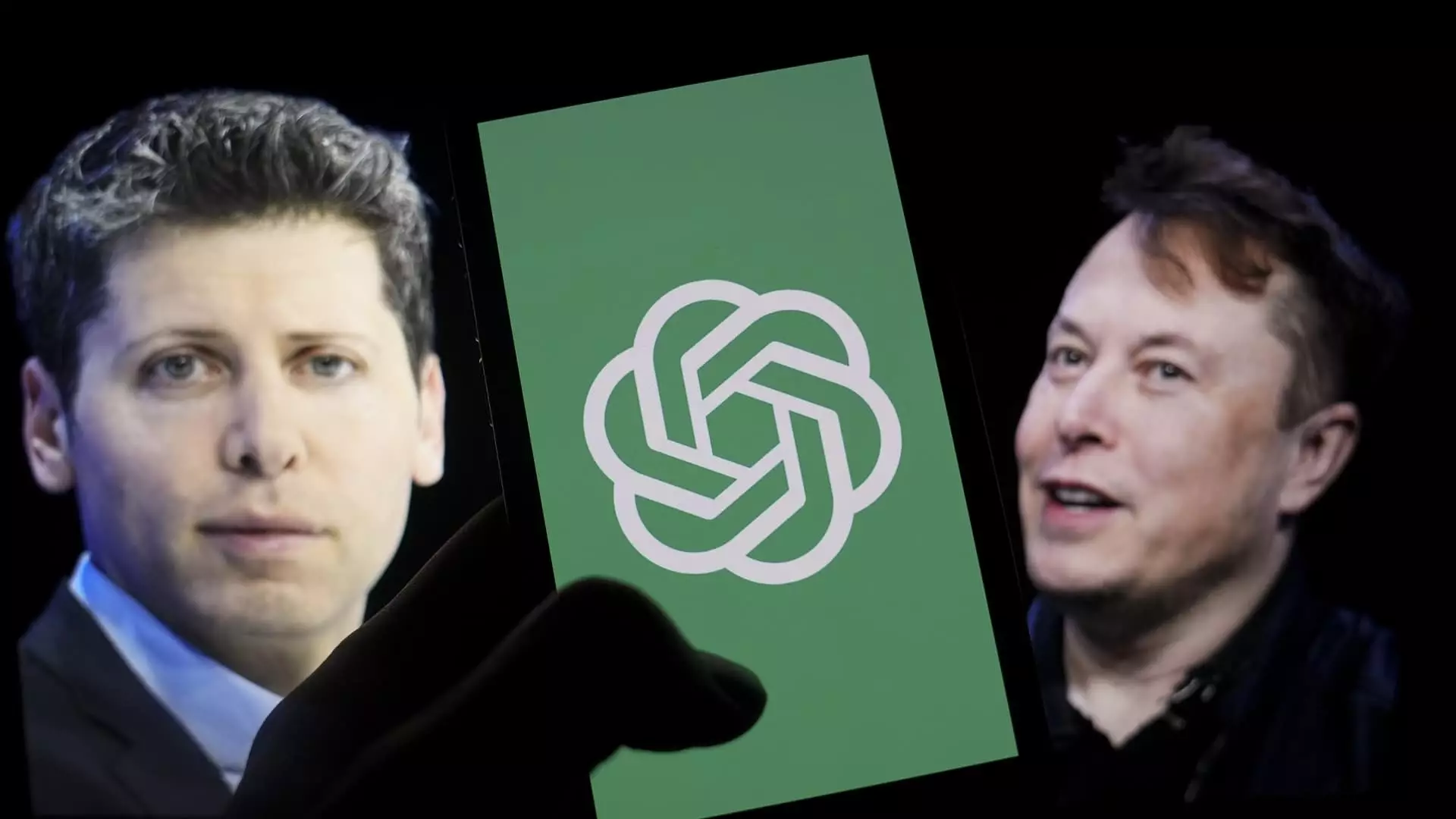In recent weeks, a significant legal battle has emerged in the tech world, revolving around the future structure of OpenAI. Elon Musk, alongside his artificial intelligence startup xAI and former OpenAI board member Shivon Zilis, has filed a lawsuit aimed at halting OpenAI’s transition to a fully for-profit model. This case is underscored by complex allegations concerning antitrust violations and competitive practices. The dispute vividly illustrates the fierce competition in the rapidly evolving AI landscape, where the dynamics of cooperation and rivalry are increasingly intertwined.
The legal confrontation initially surfaced in March 2024 when Musk faced OpenAI in a San Francisco state court. However, after retracting his initial complaint, he quickly escalated the matter by moving to federal court. Attorney Marc Toberoff is leading Musk’s legal team in this latest iteration, accusing OpenAI of infringing upon federal racketeering laws, also known as RICO. This serious legal charge indicates that Musk’s camp is not only focused on corporate competition but is also willing to invoke heavyweight legal frameworks to support their arguments.
In mid-November, Musk’s team amplified their accusations, bringing Microsoft into the fray. They contend that Microsoft and OpenAI colluded to create barriers for other companies, particularly Musk’s xAI, by pressuring investors not to fund rivals. This scenario of alleged corporate coercion, if proven, could result in serious ramifications for both OpenAI and Microsoft, highlighting serious concerns regarding market manipulation.
Musk’s attorneys have called for a preliminary injunction to prevent OpenAI from benefiting from what they classify as illicitly acquired competitive information. They assert that a coordinated effort between OpenAI and Microsoft, especially apparent in their shared governance structures, exemplifies anti-competitive behavior. Musk’s legal team described this scenario as a “Frankenstein” entity—one that has emerged from a combination of corporate interests without accountability towards fair competition.
The underlying argument reflects Musk’s perspective that OpenAI’s shifts in corporate structure might undermine the very principles on which it was established. OpenAI was founded as a non-profit entity in 2015, and while it transitioned to a capped-profit model in 2019, Musk’s camp seems to believe that a full conversion to a for-profit entity could jeopardize its foundational goals. This tension encapsulates a broader debate concerning the ethics of AI development in a landscape primarily governed by profit motives.
The increasing rivalry among AI startups and established giants such as Google, Microsoft, and Anthropic amplifies the significance of this legal feud. The generative AI market is projected to reach an impressive valuation of $1 trillion within the next decade, underscoring the aggressive potential for profitability in this sector. Musk’s xAI, launched in July 2023, represents a substantial new threat to OpenAI’s market share amid a backdrop of soaring investments.
Musk’s ambitions for xAI, including their Grok chatbot, bolster the significance of the current legal action. Raising up to $6 billion is no small feat, especially at a valuation of $50 billion. These aggressive strategies point towards a broader shift in the AI ecosystem, where investment access is pivotal for emerging players looking to stake their claim in a lucrative marketplace.
OpenAI has dismissed Musk’s claims, labeling them as meritless. This rebuttal marks a critical aspect of the ongoing saga, as it not only reflects their confidence in maintaining market dominance but also highlights the divisive environment that defines the AI sector today. The tension between Musk and OpenAI—once collaborators in the AI ecosystem—now evokes sentiments of rivalry and contrasting visions for the future of artificial intelligence.
Moreover, the Federal Trade Commission’s interest in overseeing the interactions between major tech firms suggests a regulatory scrutiny that could reshape how companies operate within this burgeoning industry. The agency’s inquiries regarding investments amongst AI developers may serve to level the playing field, but outcomes remain uncertain.
As this case develops, the implications will undoubtedly reverberate across the tech world. The potential restructuring of OpenAI, Musk’s ambition with xAI, and the overarching challenges from competitors entail a rewriting of the strategies and alliances within the AI domain. This legal battle, therefore, is not just about the actions of a few individuals but emblematic of the broader struggles faced by technological innovators vying for supremacy in an era characterized by rapid advancement and aggressive corporate tactics.
The Musk versus OpenAI scenario serves as an intriguing case study in the conflict between cooperation and competition, illustrating the complexities that define the modern AI landscape. The unfolding legal drama may set precedents that could influence how corporations engage with innovation, investment, and ethical governance in technology.



Leave a Reply